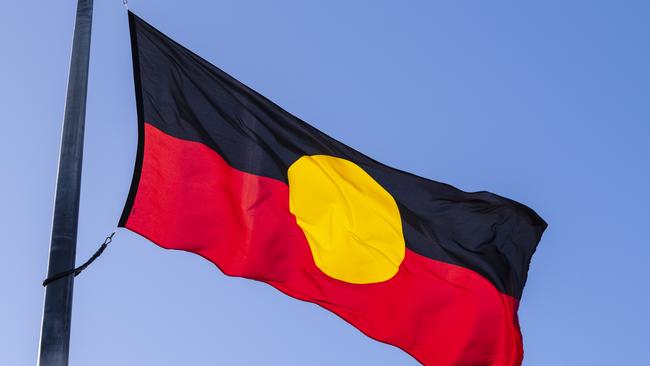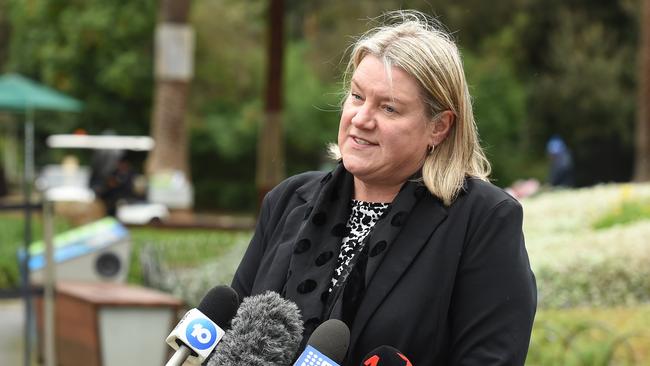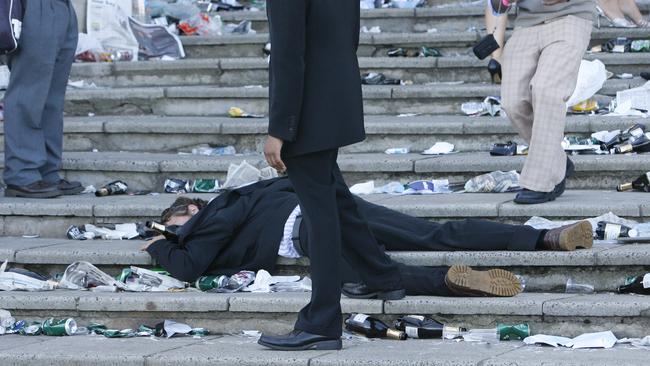Most Victorian sobering up centres for Aboriginal people only
The state government’s public drunkenness laws – which kick in on Cup Day – will see nine of 10 sobering up centres used for Aboriginal Victorians only.
Victoria
Don't miss out on the headlines from Victoria. Followed categories will be added to My News.
Nine of the state’s 10 new sobering up centres will be for the exclusive use of Aboriginal Victorians.
The Sunday Herald Sun can reveal the state government’s controversial public drunkenness reforms will see non-Aboriginal Victorians only able to access a single 20-bed sobering-up centre in Collingwood.
Ahead of the decriminalisation of public drunkenness on Tuesday, the Sunday Herald Sun can exclusively reveal how the new health based response will operate.
Details released by the state government show non-Aboriginal Victorians will be serviced by a single 20-bed sobering-up centre in Collingwood.
Aboriginal and Torres Strait Islanders, who represent 1 per cent of the state’s population, will have access to dedicated facilities in St Kilda and across regional Victoria.
Sites will eventually be setup in Geelong, Ballarat, Bendigo, Shepparton, Mildura, Swan Hill, the Latrobe Valley and East Gippsland.
Stays at centres are expected to be short and at a maximum 12 hours.

A dedicated phone line to triage incidents will only be accessible by emergency services, local government authorities, liquor licensees and transport operators.
It will be run by the Victorian Aboriginal Health Service.
Members of the public wanting to access the service will need to phone triple-0, prompting concerns about increased pressure on the emergency services operator.
However government sources said they were confident there would be no negative impact on the call-taking agency.
The Emergency Services Telecommunications Agency’s latest annual report revealed it is meeting its targets for answering calls on time for the first time in years, but is failing to meet other crucial targets.
Police will be stripped of the power to arrest public drunks from Melbourne Cup Day, but will remain an integral part of the new response.
Under new rules, 40 staff will take extremely drunk Victorians home or to “sobering-up” centres.
Outreach services will also operate across the state, including 10 teams across Melbourne, to help transport to a safe place if needed.
First Nations outreach services will also operate across Melbourne, Frankston and Wyndham.

Minister for Mental Health, Ingrid Stitt, said police and paramedics will be relied on where there was an emergency health need or community safety risk.
“Simply being intoxicated in public shouldn’t be a crime. And from Tuesday, it won’t be,” she said.
“People who are intoxicated in public often need no help at all. Some will find they need a safe space to sober up, while others might need health care.
“We know people shouldn’t end up in a police cell just for being intoxicated.
“But for a disproportionately high number of First Nations people, that’s long been the reality.
“We’re bringing a health-led approach to people who find themselves intoxicated in public and needing help – rolling out a range of new dedicated services in the areas they are needed most – to give people the space, support and care they need.”
The government has dismissed concerns about the major reform being introduced on Cup Day, one of the booziest days of the year.


A spokesman said there were just five arrests for public drunkenness statewide on Cup Day last year – less than the daily average of eight arrests.
The decision to scrap public drunkenness was recommended by a panel set up by the government after the death of Yorta Yorta woman Tanya Day in police custody in 2017.
A report released by that inquiry said police should be a “last resort” in cases of drunkenness, with high-level cases taken to hospital.
The offence has been removed from every state other than Victoria and Queensland.
As part of the major reform an Implementation Monitoring and Oversight Group will be setup to assess the new services.





